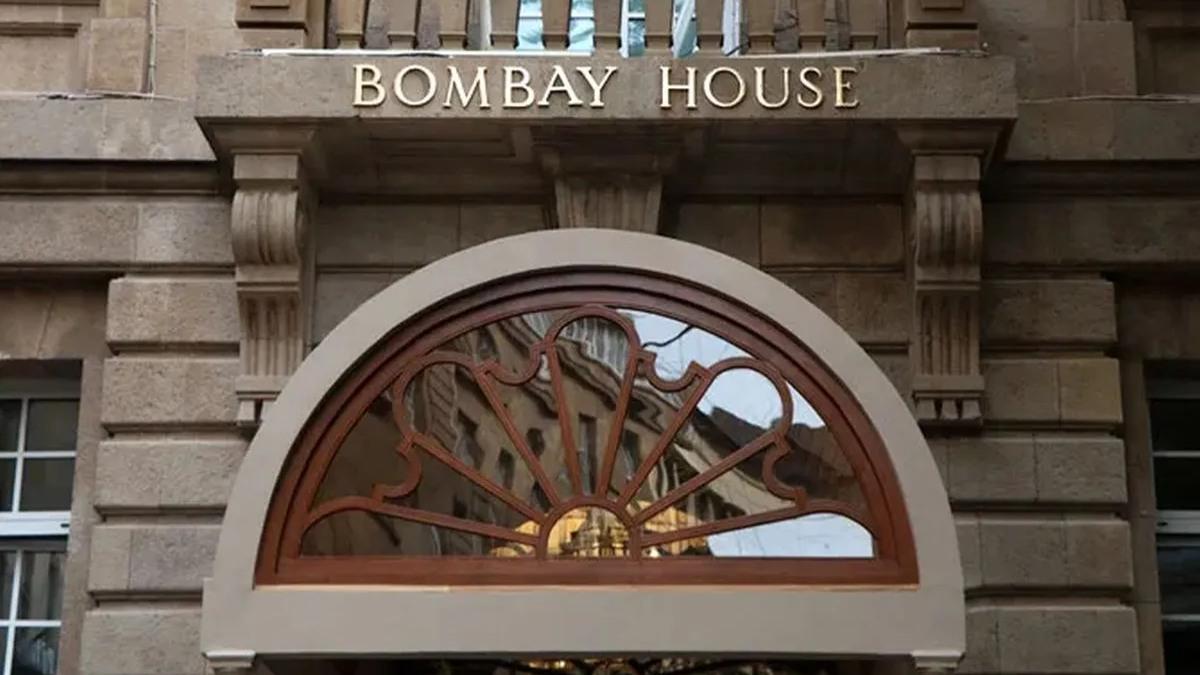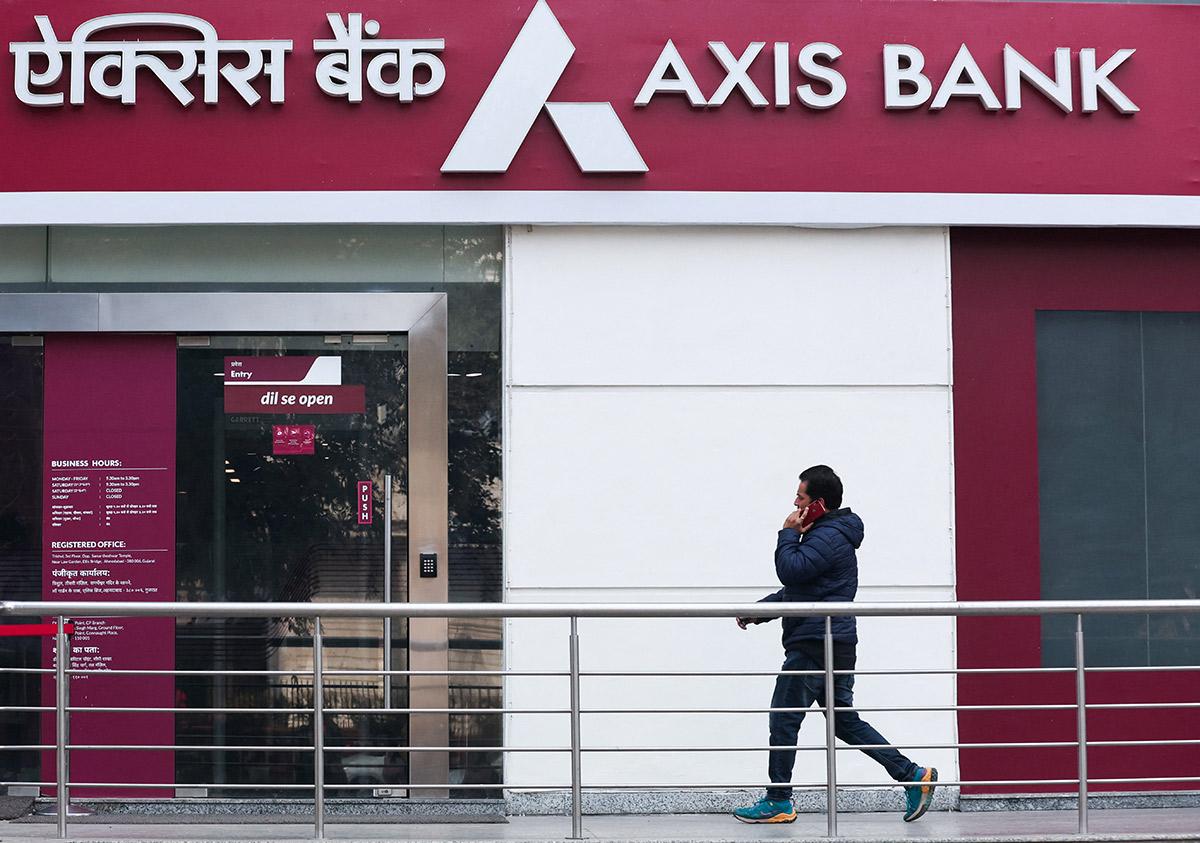Tata Sons, now debt-free, has asked the RBI to drop its ‘upper-layer NBFC’ tag and allow it to stay private.

IMAGE: Bombay House in Mumbai, the headquarters of the Tata Group. Photograph: Hitesh Harisinghani/Rediff
Tata Sons Pvt Ltd, the holding company of the Tata group, may argue for the same regulatory relief that the Reserve Bank of India granted to Shanghvi Finance Pvt Ltd, the investment arm of Sun Pharmaceutical Industries promoter Dilip Shanghvi, to remain private after the central bank declassified the latter from its ‘upper-layer’ non-bank lender category in 2023 following payment of the company’s debt, said top corporate lawyers.
Tata Sons, the holding company of India’s largest conglomerate, was grouped with Shanghvi Finance in the RBI’s 2022 list of ‘upper-layer’ non-banking financial companies (NBFCs).
The classification required upper layer NBFCs to list their shares by September 2025.
While Tata Capital, the group’s financial arm, listed earlier this month to comply with the directive, its parent Tata Sons has applied to remain privately held after the Tata group holding company repaid all outstanding debt and formally requested the RBI to declassify it as an upper-layer NBFC. The RBI’s decision on Tata Sons’ application is currently pending.
Shanghvi Finance had repaid short-term loans totalling ₹341 crore in 2021-2022 (FY22), and cleared the remaining promoter loans of ₹538 crore by December 2022, according to a statement by Care.
Shanghvi Finance owns around 40 per cent stake in Sun Pharma, and a similar stake in Sun Pharma Advanced Research Company.
After repaying its loans, Shanghvi Finance surrendered its NBFC licence on February 9, 2023, which the RBI later cancelled.
Effective May 17, it became an unregistered Core Investment Company (CIC), which, under RBI norms, cannot access public funds.

IMAGE: Natarajan Chandrasekaran, chairman, Tata Sons. Photograph: The Late Danish Siddiqui/Reuters
Tata Sons, meanwhile, repaid ₹20,642 crore in FY23 to become a net debt-free company before seeking declassification as an NBFC, according to its annual report.
With Tata Sons’ application still pending, legal experts said that the central bank should extend similar relief, since the company no longer fits the profile of a leveraged NBFC.
Lawyers said the RBI requirement was designed to enhance transparency, market discipline, and systemic resilience.
“At the same time, the framework also provides for annual review and declassification where an NBFC demonstrably no longer meets the systemic thresholds. The precedent of Shanghvi Finance in 2023 is instructive: Once the company deleveraged and ceased to pose material contagion risk, the RBI exercised its discretion to remove it from the upper layer. Tata Sons’ application rests on a similar legal and regulatory footing,” said Hardeep Sachdeva, senior partner, AZB & Partners.
As a CIC governed by the 2016 CIC Directions, Tata Sons has now extinguished all external debt, and functions primarily as a holding entity, with over 90 per cent of its assets invested in group companies.
On a strict reading of Section 45-IA and related provisions of the RBI Act, 1934, coupled with the SBR framework, it could reasonably argue that it no longer triggers the prudential concerns that justified its earlier classification. That said, the RBI’s discretion is not mechanical but purposive, added Sachdeva.

Photograph: Toby Melville/Reuters
Sakate Khaitan, senior partner at Khaitan Legal Associates, said any exemption sought by Tata Sons from mandatory listing must be examined within the confines of statutory intent.
“Tata Sons has exhibited bona fide intent to deleverage — through divestments, debt repayment, and its decision to surrender the CIC licence. Mandating a listing, however, may alter its philanthropic structure and governance model. Conversely, a grant of relief, without clear criteria, risks eroding regulatory predictability,” Khaitan explained.
“The resolution of this matter will, therefore, hold significant value in setting how India’s financial regulator accommodates multi-faceted conglomerates while preserving the integrity of oversight,” Khaitan said.
A listing of Tata Sons would have provided an exit route for minority shareholder Shapoorji Pallonji group, which holds an 18.4 per cent stake and is seeking to pare its debt.
On October 10, the Shapoorji Pallonji group reiterated its demand for transparency, fairness, and good governance in resolving its holding through a Tata Sons listing.
The Shapoorji Pallonji group has expressed faith in the RBI, describing it as a constitutional and autonomous authority guided by equity and public interest.
Tata Trusts, which owns 66 per cent of Tata Sons and holds veto powers over key decisions, has urged the company’s management to explore options for the Shapoorji Pallonji group’s exit.
Discussions on the terms of a potential share sale are ongoing. Interestingly, the trustees unanimously support keeping Tata Sons private, citing the largest interest of the beneficiaries of the Trust and the people of India, according to a source in the group.
Since the majority of Tata Sons is owned by charitable public trusts, it allows the Tata group to operate with its philosophy of prioritising national welfare over shifting focus to quarterly profits, the source said.
Tata Trusts is currently witnessing a power struggle between the Chairman and Tata family patriarch Noel Tata and trustee Mehli Mistry, a long-time confidant of the late Ratan Tata.
While Vice-Chairmen Venu Srinivasan and Vijay Singh have aligned themselves with Noel Tata, Mistry has drawn support from fellow trustees Darius Khambata, a senior lawyer; former banker Prameet Jhaveri, and Jehangir H Jehangir, the Pune-based owner of Jehangir Hospital.
The Mistry camp voted to remove Singh from the board of Tata Sons in September, and on the same day, Noel Tata and other trustees voted against sending Mistry as Tata Trusts nominee to Tata Sons board.
Tata Trusts’ nominee directors currently enjoy veto powers in Tata Sons’ decisions. The current trust nominee directors are Noel Tata and Srinivasan.
Feature Presentation: Rajesh Alva/Rediff




